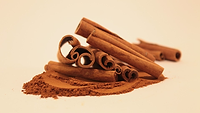FDA: Intentional Adulteration Possible Cause of Lead in Recalled Cinnamon Applesauce Pouches

Image credit: FDA
Jim Jones, the new Deputy Commissioner for Human Foods at the U.S. Food and Drug Administration (FDA), told Politico that the recently recalled, lead-contaminated applesauce packages, which have poisoned dozens of children across the country since October 2023, may have included intentionally adulterated cinnamon. FDA’s theory is unconfirmed as the investigation is ongoing, but according to Mr. Jones, all the information gathered thus far points to economically motivated adulteration of cinnamon used in the pouches by an actor along the supply chain.
Mr. Jones shared his belief that the actor who adulterated the cinnamon used in the pouches did not think the product would be imported to a country with a robust regulatory process or the ability to detect contamination in the ingredient, such as the U.S. Although no conclusions have been drawn as to how or why the lead was added, or by whom, the leading theory is economically motivated adulteration, which is a type of food fraud that is carried out to sell a cheapened product or an ingredient for higher prices.
In late October 2023, FDA was alerted by the North Carolina Department of Health and Human Services (NCDHHS) to reports of children with elevated blood lead levels (BLLs), which NCDHHS linked to the consumption of WanaBana Apple Cinnamon Fruit Puree pouches after finding high levels of lead in the product. FDA testing revealed WanaBana puree samples to contain lead at a level of 2.18 parts per million (ppm), which is more than 200 times greater than the action level FDA has proposed in a draft guidance for fruit purees and similar products intended for babies and young children. After discovering contamination in WanaBana pouches and recalling the product, similar adulteration was found in Weis and Schnucks brand fruit puree pouches, and those products were recalled as well.
Lead poisoning caused by the tainted fruit puree pouches is widespread across the U.S. As of December 11, 2023, at least 65 children up to six years of age have been sickened, according to FDA. The U.S. Centers for Disease Control and Prevention (CDC), which uses a different illness reporting structure than FDA, has received reports of 46 confirmed cases, 68 probable cases, and 11 suspected cases, for a total of 125 cases from 22 different states.
Root-cause investigation conducted by Austrofood, the manufacturer of the implicated puree pouches, and Wanabana USA, the U.S. distributors of WanaBana pouches, pointed to cinnamon being the cause of contamination. The cinnamon was supplied by Negocios Asociados Mayoristas S.A., operating as Negasmart, a third-party distribution company located in Ecuador. FDA’s work with Ecuadorian authorities to investigate the source of the contamination has included an onsite inspection and sample collection at the Austrofoods facility located in Ecuador, as well as gathering information about Negasmart, including whether the cinnamon in the recalled products was used in other products exported to the U.S. Samples collected from the Austrofood facility were found to contain extremely high levels of lead contamination—5,110 ppm and 2270 ppm—which, for context, is much higher than the maximum level for lead in bark spices (2.5 ppm) currently proposed by the Codex Alimentarius Commission.
At present, FDA is still relying on officials in Ecuador to support the investigation into Negasmart, and the firm is currently under an Ecuadorian administrative sanctions process. While the agency's information indicates that, in the U.S., the contaminated cinnamon is limited to only the applesauce products that have already been recalled, FDA is still investigating whether the cinnamon in the recalled products was used in other products exported to the U.S. So far, increased screening for imported cinnamon from certain countries remains in place, and FDA has no indication that this issue extends beyond these recalled products.
Update, December 20, 2023: FDA has received 69 reports of illness in children under six years of age potentially linked to a recalled WanaBana, Schnucks, or Weis brand fruit puree product. CDC has received reports of 67 confirmed cases, 122 probable cases, and 16 suspected cases for a total of 205 cases from 33 different states through its reporting structure.
Update, December 27, 2023: FDA has received 82 confirmed reports of adverse events potentially linked to recalled product for people between zero and 53 years of age.
Update, January 3, 2024: As of December 29, 2023, CDC has received reports of 80 confirmed cases, 187 probable cases, and 20 suspected cases for a total of 287 cases from 37 different states.
Update, January 5, 2024: In FDA’s testing of the recalled products and the cinnamon collected from the Austrofoods facility, the agency has found chromium. FDA recommends that people who ate recalled products, especially if they had elevated blood lead levels, inform their healthcare provider so they can monitor health and provide supportive care, as needed. The level of chromium detected in the two samples of cinnamon yielded 1,201 and 531 ppm. Because of the limited amount of cinnamon used in the finished product, the level of chromium detected in the reanalysis of FDA samples of the recalled WanaBana Cinnamon Apple Puree product yielded 0.590 and 0.566 ppm.
Update, January 9, 2024: FDA has received 87 confirmed reports of adverse events potentially linked to recalled product for people between zero and 53 years of age, with a median age of one year. CDC has received reports of 86 confirmed cases, 209 probable cases, and 26 suspected cases for a total of 321 cases from 38 different states.
Update, January 17, 2024: FDA has received 89 confirmed reports of adverse events potentially linked to recalled product. CDC has received reports of 93 confirmed cases, 233 probable cases, and 28 suspected cases for a total of 354 cases from 41 different states. FDA’s investigation is ongoing to determine the point of contamination and whether additional products are linked to illnesses.
Update, January 24, 2024: As of January 22, 2024, FDA has received 90 confirmed reports of adverse events potentially linked to recalled product, with complainants ranging 0–53 years of age and having a median age of one year old. As of January 19, CDC has received reports of 97 confirmed cases, 253 probable cases, and 35 suspected cases for a total of 385 cases from 42 different states.
In a letter dated January 19, 2024, a bipartisan group of Congress members representing the House Committee on Energy and Commerce wrote FDA to express concerns and request an immediate briefing.
Update, February 7, 2024: Ecuadorian officials in Agencia Nacional de Regulación, Control y Vigilancia Sanitaria (ARCSA) have reported that Carlos Aguilera of Ecuador, the processor of the ground cinnamon supplied by Negasmart to Austrofoods and later used in recalled apple cinnamon products, is the likely source of contamination and is not in operation at this time. Additionally, according to ARCSA, the unprocessed cinnamon sticks used in recalled products were sourced from Sri Lanka and were sampled by ARCSA and found to have no lead contamination. ARCSA’s investigation and legal proceedings to determine ultimate responsibility for the contamination are still ongoing.
As of February 5, 2024, FDA has not received any additional confirmed complaints/reports of adverse events potentially linked to recalled product. As of February 2, CDC has received reports of 100 confirmed cases, 277 probable cases, and 36 suspected cases for a total of 413 cases from 43 different states through their reporting structure.
Update, February 29, 2024: After additional analysis of the cinnamon collected from the manufacturer in Ecuador (Austrofoods), FDA has confirmed that the lead and chromium previously detected in the cinnamon are from lead chromate.
Looking for a reprint of this article?
From high-res PDFs to custom plaques, order your copy today!






